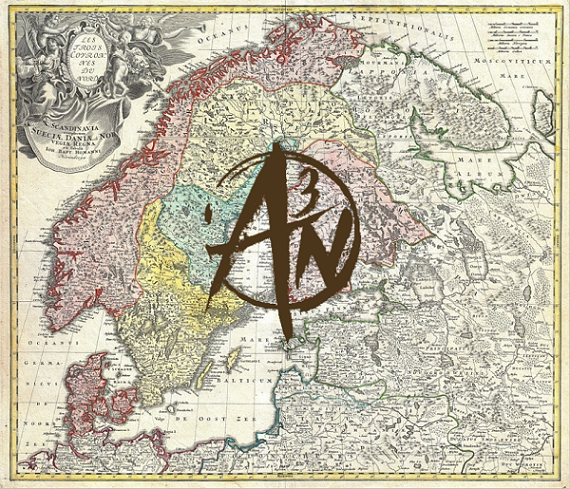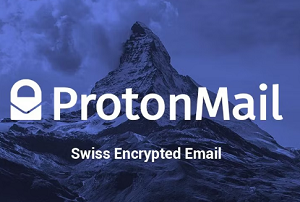
Economic Separatism – The Stable Fragility
As a Swede living in Norway, with friends and family on both sides of the border, I have the sketchy privilege of hearing the jungle telegraph from (at least) two different angles. These past few months of quarantine, lockdown, and overall media frenzy have been interesting in this regard. Don’t worry, you’re not going to get some “Corona Wisdom” from yet another idiot on the internet. It will just serve as a backdrop in this case.
I’ve made it a habit to check news from both Sweden and Norway to try to catch what others are saying on the matter. Above all, to get information on when I can go back to work again and harvest knowledge and fiat currency. The comment sections and social media have been on fire when it comes to the Covid-19 situation. Everybody seems upset and the grass is, obviously, permanently more green on the other side, no matter which side people are sitting on.
It is interesting to see two completely different solutions being implemented so close to each other, both culturally and geographically speaking. Norway gradually increased school and workplace lockdowns, upped border security, changed workplace laws. The government even slipped through “emergency powers” that they gave themselves, as one does when one is in charge. They are now rolling everything back slowly.
On this side of the border, the Norwegian side, the concern most people have is that the government has taken away economic power from the people, promised compensation that got stalled, and implemented some unpopular rules to keep people in check.
We still have to play some weird version of theater where we publicly need to act concerned and socially distanced. Most people know that it is just charades. A minority uses all the totems they have been given to live out their paranoid fantasies to the maximum in a flurry of face masks, plastic gloves, tracer applications, and so on.
On the other side of the border, in Sweden, people seem upset for a totally different reason. “Why isn’t the government locking everything down?” is an online battle cry. I am just as surprised as everybody else on this matter.
Sweden tries, in most cases, to be the big brother that knows best (and with its own measurement stick for what this “best” is) in everything. It’s sort of a religion for the Swedish political class to try to construct the best, most world-class liberal utopian sandcastle. They decorate their sandcastle in slogans and well-meaning, and take things to an absurd level, everything else be damned. So, with that in mind, why didn’t Sweden try to be the best in class this time around? It is very uncharacteristic indeed.
Even if it is fun to speculate, I don’t think it will get us (me) anywhere to try and untangle this. I am partial to Per Bylund’s sober reflection on the matter, but I want to focus on something more zoomed-in — the individual Swedish person and why they’d like the government to close down businesses. More to the point; Why did it upset them the government didn’t?
Risk. Reward. Resources.
Here is the logic matrix laid out, as far as I could gather from talking with people online:
- There is a risk that you will catch the virus.
- You want to avoid the risk but can’t stop working because you are dependent on the cash flow in one way or the other.
- If the government demands a shutdown and you can get a government check, you avoid the risk, yet still, get the reward. This is the Norwegian situation.
- If the government refuses you this risk-dodging, it is easy to fall into the trap of blaming someone else for your situation over taking a look at your own participation in it up to this point. This is the Swedish situation.
I got some of my accounts banned in pockets of Swedish social media because I asked “Yeah, the virus sucks and all, but you know you can stay at home on your own terms if you are scared, right?”
If someone is scared of catching a virus, it’s only logical that they stay at home and ride it out. You don’t wait around for the government to tell you how to tie your shoelaces in a life and death situation when you are genuinely scared. My line of thinking exposed that they weren’t prepared and were looking for an easy solution.
Trying to correct your current situation is really hard during a pandemic, I get that.
But, not even entertaining the idea that you might have painted yourself into this corner? Some had a solution and saved enough resources to stay home and skip paychecks, and have the means to do it for quite some time, which is a very privileged situation to be in. But, most people live in a “Stable Fragility”. If that makes sense.
If you take a brief moment and think about all the advantages the urban person has today over just 100 years ago: freezers and fridges for storage. Access to cheap base staples like rice, pasta, and beans. Water on tap, energy out of a socket in the wall. Digital money, information, and communication systems that you can access 24/7 in multiple ways. Tech ranging from cars that can take you almost anywhere, to solar panels you can carry in one hand. We have all this but are still vulnerable to changes. Most of us still live paycheck to paycheck and on borrowed money. I would have been hit hard if I didn’t have a combination of savings, bitcoin, and a grey market I could service. I would probably have been lost. The “Stable Fragility” is the economic separatist’s worst enemy. The Agora starts with you.








1 comment
Biky
June 01, 2020Haha, brilliant. I always tell people this too: one genuinely scared would just stay at home, government free gibs or not. I also get these stupid replies with “you have to work or you will starve,” which is fair to some extent, but I always tell people that it’s their own fault and I get tons of flak for telling them the truth. Why haven’t they saved enough food and water to last them for a while? Why haven’t they saved enough money to not work a few months and used one of the abundant catering / delivery applications to order supplies (or better yet, pay a neighbor to do their shopping)? Then I get all kinds of excuses and shifting the blame on someone / something else. And when I manage to get them back on track and tell them that people have 2 options: 1) take the risk and go to work, knowing that you may die of any causes, disease or not, by working, or 2) staying safe in your house and starve to death – I am still the one getting flak. Why? All of this is true, nothing in life is without risk, going outside your home, you face the risk of being hit by a car or by lightning. Improbable? Yes. 0% chance? No. We ultimately die of something and it’s every individual’s duty to assess the risks involved in most cases and take a decision based on that. But people nowadays are so entrenched in “safe spacing” that telling people the truth is making them feel anxious. We live in a sick society that has been pampered by the nanny state to such an alarming extent that nowadays people don’t even want to consider that risks exist and god-forbid they have to *gulp* take decisions for themselves!